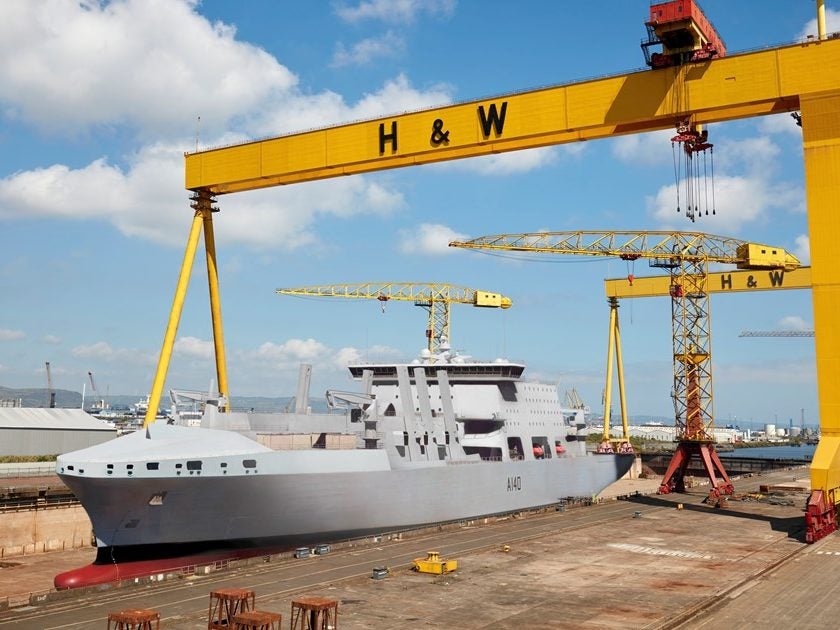
The competition marks the UK’s second attempt at the programme to acquire the new Royal Fleet Auxiliary ships that have consistently drawn criticism for the UK government’s plans to allow foreign shipyards to participate in the work.
Under the competition, the UK wants the three ships delivered by 2032. High-level requirements for the competition include a ship design that ‘minimises whole-life cost’ and meets sustainability objectives.
The three Fleet Solid Support Ships will carry munitions, food, stores and provisions for Carrier Strike Groups and Amphibious Task Groups at sea.
Launching the programme, Defence Secretary Ben Wallace said: “As Shipbuilding Tsar, I am delighted to launch the competition for these crucial Fleet Solid Support ships.
“These vessels embody our commitment to a truly global presence by supporting the Royal Navy’s operations around the world.
“The competition reaffirms our dedication to investing in shipbuilding and support jobs across the UK maritime industry.”
Successful bidders will be allowed to work in partnership with international companies but are required to integrate the ships in UK yards. Interested companies have been invited to register interest.
Defence Equipment and Support (DE&S) director general ships Vice Admiral Chris Gardner said: “The launch of the Fleet Solid Support competition presents a really exciting opportunity for the shipbuilding industry to support the design and build of a new class of ship that will primarily resupply our Queen Elizabeth Class aircraft carriers.
“It is also another step in implementing the National Shipbuilding Strategy and increasing our domestic maritime construction capacity and capability alongside the Type 26 and Type 31 programmes already underway.
“The FSS ships will join the QEC Task Group, carrying out replenishment at sea to supply stores and ammunition to sustain operations, which is essential to meeting the UK’s defence commitments. To do this the ships will be able to transfer loads of more than two tonnes at a time while at high speed.”
A manufacturing contract for the three ships is expected to be placed within the next two years following relevant approvals.
Ian Waddell, general secretary of the Confederation of Shipbuilding and Engineering Unions (CSEU), criticised the UK governments continued ‘push’ for the involvement of overseas shipyards in the work.
Waddell added: “It is vital that these ships are designed and built in the UK in order to pump money into the regional economies in every part of the UK and maintain our world-class workforce which has recently completed the aircraft carrier programme.
“The involvement of overseas shipyards will simply complicate matters and mean continued uncertainty for many yards who are hanging on by their fingernails”.



